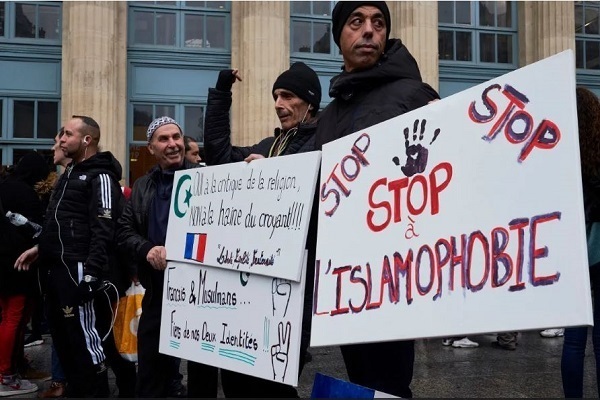Survey Finds Two-Thirds of French Muslims Report Experiencing Racism

A survey published on September 15 by the French Institute of Public Opinion (Ifop) shows that 66% of French Muslims report experiencing racist behavior, Yabiladi reported on Tuesday.
The research, commissioned by the Great Mosque of Paris, suggests what it calls a “multidimensional discriminatory system.”
The study was conducted between August and September 2025 and surveyed 1,005 Muslims in France, aged 15 and older. By comparison, only 20% of the general French population reported similar experiences in 2023, making the figure for Muslims more than three times higher.
Read More:
According to the survey, 82% of respondents believe hostility toward Muslims “is now a widespread phenomenon in France.” The findings also indicate that discrimination is particularly severe in areas of daily life that determine social mobility.
Employment is a key barrier. More than half of Muslim respondents (51%) said they faced discrimination when looking for jobs, compared to 7% of people from other religious groups. Housing presents similar challenges, with 46% of Muslims citing discriminatory treatment, compared to just 6% of others.
The survey further shows that public services—where neutrality is expected—are also affected. Some 36% of Muslims reported bias from administrative officials, 29% from healthcare providers, and 38% from teachers. The data also points to police checks as a major site of unequal treatment, with 51% citing negative experiences.
Chems-eddine Hafiz, rector of the Great Mosque of Paris, said the findings underline that “the fight against Islamophobia” should not be seen as “a community demand” but as “a matter of national security and republican cohesion.”
Read More:
The Great Mosque described the results as a shift “from reactive outrage to statistical objectification of exclusion mechanisms.” It noted that discrimination often occurs “at the gateways to real equality,” such as employment, housing, and access to public services.
The study also highlights that visibility plays a role. Wearing religious clothing, speaking with a distinct accent, or having sub-Saharan origins sharply increased the likelihood of discrimination, with an estimated probability of 85%.
To address the problem, the Great Mosque proposed three measures: expanding long-term testing campaigns, improving training for frontline staff in sectors like healthcare and education, and publishing a semi-annual Ifop-GMP barometer to track trends. Without such tools, it warned, short-term incidents risk being mistaken for long-term patterns.
Source: Agencies



